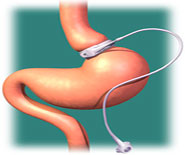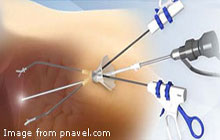Being overweight or obese increases your risk for serious health conditions like heart disease, cancer, diabetes, and other conditions. It can also have a negative impact on your quality of life, self-esteem, and relationships. And that’s no way to enjoy all the Port Jefferson area has to offer.
Most people who visit our practice have already tried a long list of fat diets to lose weight. Many achieve short-term success with these types of diets. But studies show that about 80 percent of people who take this approach to weight loss are yo-yo dieters who typically gain the weight back over time.
Fortunately, new techniques in weight reduction surgery can change your eating habits, promote weight loss, and keep the weight off for good. You may be a good candidate for LapBand surgery or a sleeve gastrectomy. Until recently, these procedures were considered invasive but advances in technology have made these life-changing procedures safer and easier with Single Incision Laparoscopic Surgery (SILS).



